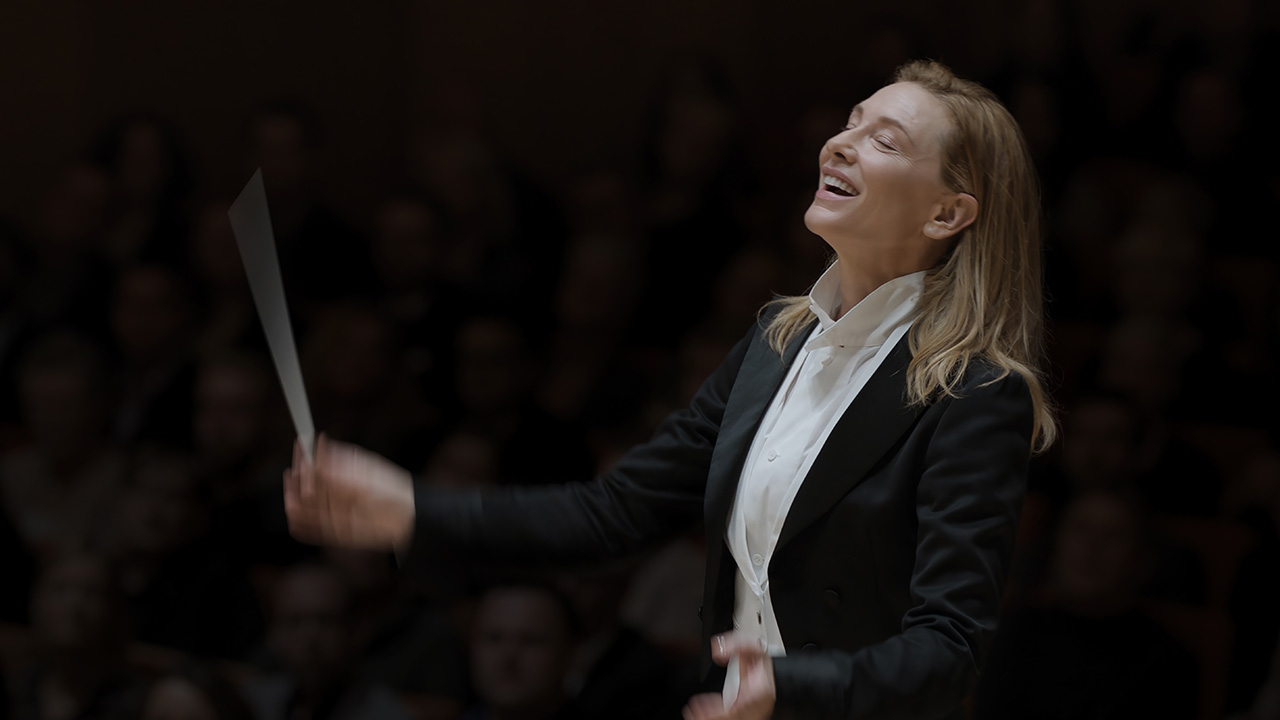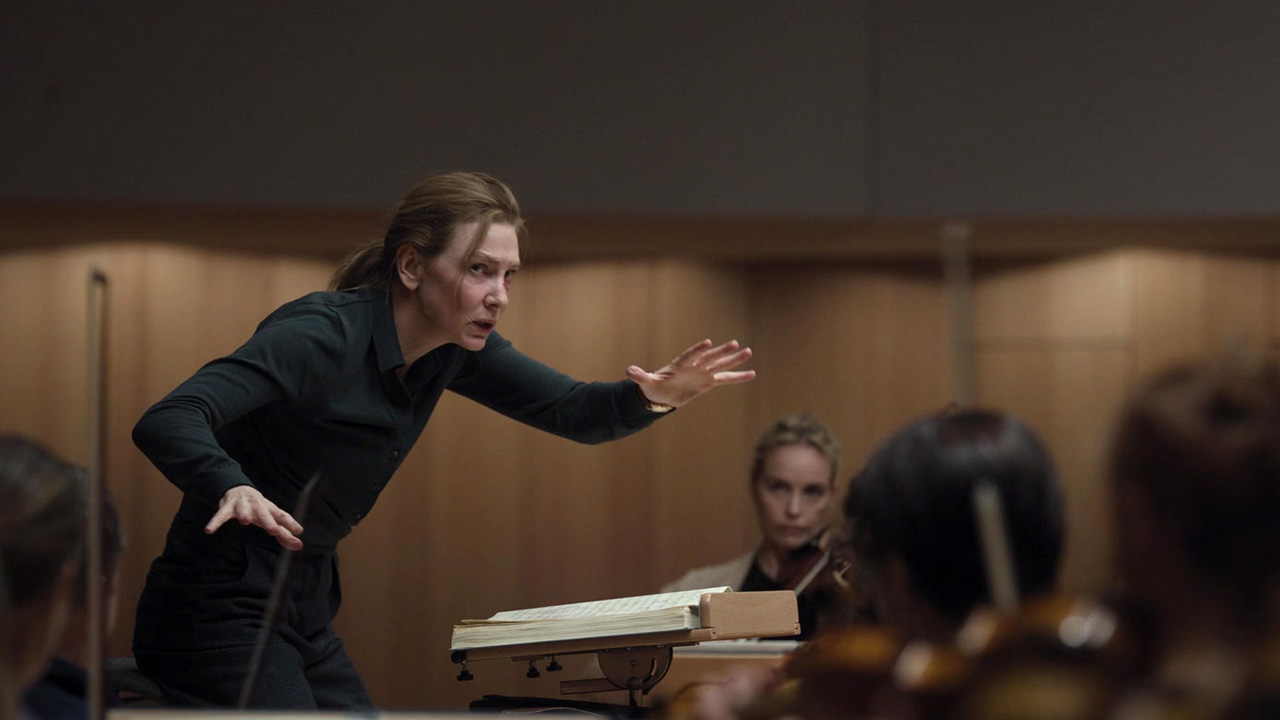Tár masterfully entrances you in every scene of its 158-minute runtime

Cate Blanchett is an ego-consumed orchestral conductor in Tár. After a 16-year hiatus, filmmaker Todd Field’s return is a near-expert class of direction, writes Rory Doherty.
There’s something really appealing about a 150+ minute movie. If all the elements line up—a rich visual style, powerhouse acting talents, great premise and themes—it can feel amazing to submerge yourself with an ambitious, lengthy story, and once it’s over you feel like you’ve digested something substantive. It’s certainly the case with Tár, the classical music/cancel culture/ghost story we didn’t know we needed; it masterfully entrances you in every scene of its 2-hour 38-minute runtime. It’s a film constructed with incredible technical and emotional power, a breathless exercise in unease, and feels so utterly mature in appeal, its existence is something of a marvel. Long live the epic character study!
Lydia Tár isn’t just at the top of her game, she’s seemingly at the top of everyone else’s as well. A modern legend in classical music, composing, and conducting, she’s an EGOT winner and former pupil of Leonard Bernstein, with unmatched influence and expert knowledge of her talents. And as the first half hour of Tár reveals—gradually, like assembling a patchwork—she’s drawn to younger female prodigies and has her own share of secrets. As these strands become more intertwined, Tár’s severe style becomes more impactful, resulting in a crescendo of paranoia and powerlessness as our protagonist is stripped to her bare elements. And no one can pull that transformation off better than Cate Blanchett.
Tár is surrounded by people who want a taste of her exponentially growing talent or feel like they’ve been sidelined by it. Her assistant Francesca (Noémie Merlant) is eager to move ahead with her own conducting career, feeling stuck with the drudgery of scheduling a genius. Her wife Sharon (Nina Hoss) was the promising first violin in Tár’s orchestra before their affair, now plagued with health complications and a growing suspicion. There’s fellow conductors and former mentors, all fighting irrelevancy or jealousy. What makes Cate Blanchett’s lead turn so compelling is the smugness she holds regarding them all; she knows how powerful she is in these circles and has no qualms with instilling tension in those around her and manipulating situations to achieve what she wants.
This is, in effect, the point of Tár—how power becomes an identity in itself and the psychological damage incurred when it is ultimately rescinded. Rarely do Hollywood tragedies ever feel this academic in scope and detailing. Funnily enough, other arts academy/twisted mentor stories come to mind, like Whiplash and Suspiria, but in its European cast and setting (most of the film takes place in Germany), there’s shades of Haneke’s The Piano Teacher in their shared narratives of an artistic elite being pulverised by repression.
It’s these rich sources of influence that propels Tár through its 158 minute runtime with scarcely a wasted moment. Once you start to see what the story will tackle, it’s possible to find its dramatic arc uninventive (we have, of course, been inundated with real-life cancellations the past few years), but such a criticism feels reductive. This isn’t a story about cancel culture, but ego; a tragedy of obsessive paranoia where the guilty party is always, deep down, aware of the kernels of complicity that will ruin them. She bores into those around her like a drill bit, slowly corroding her dependents like a militant virus, and it’s impossible to look away as she spirals ever downward.

None of the performances, themes, or emotions of Tár would have the same impact were it not for the exemplary technique on display. Director Todd Field returns from a 16 year filmmaking hiatus to command a near expert class of direction, melding Florian Hoffmeister’s camerawork and Monika Willi’s editing into an atmosphere that’s bristling with bombastic, charged emotions that can also feel austere and devoid of warmth when it wants. Often, sequences will feel like a visual art exhibition; intense, stark exposure to ideas and image, where meaning grows in your mind despite how abstract some scenes may initially feel. Sound is, as one might expect, crucial to Tár; with an original score by Joker’s Hildur Guðnadóttir but barely any diegetic music, the taut silences are sometimes broken up with the pained and mechanical sounds that haunt her deterioration.
Even after the credits roll, you may still find yourself thinking, “Who is Lydia Tár?” Is she a phoney, a construct? Or is she the most piercingly direct and honest person there is, so consumed by their own talent they can’t live a minute ignoring it? Regardless of what the answer is, everyone in her orbit is forced to cater to every aspect of her genius even after she’s shown her reluctance to help them. Lydia Tár is a creation of her own calculated design, a performance that must be upheld with poise and grace, like her conducting, or the whole symphony will fall into chaos.



















